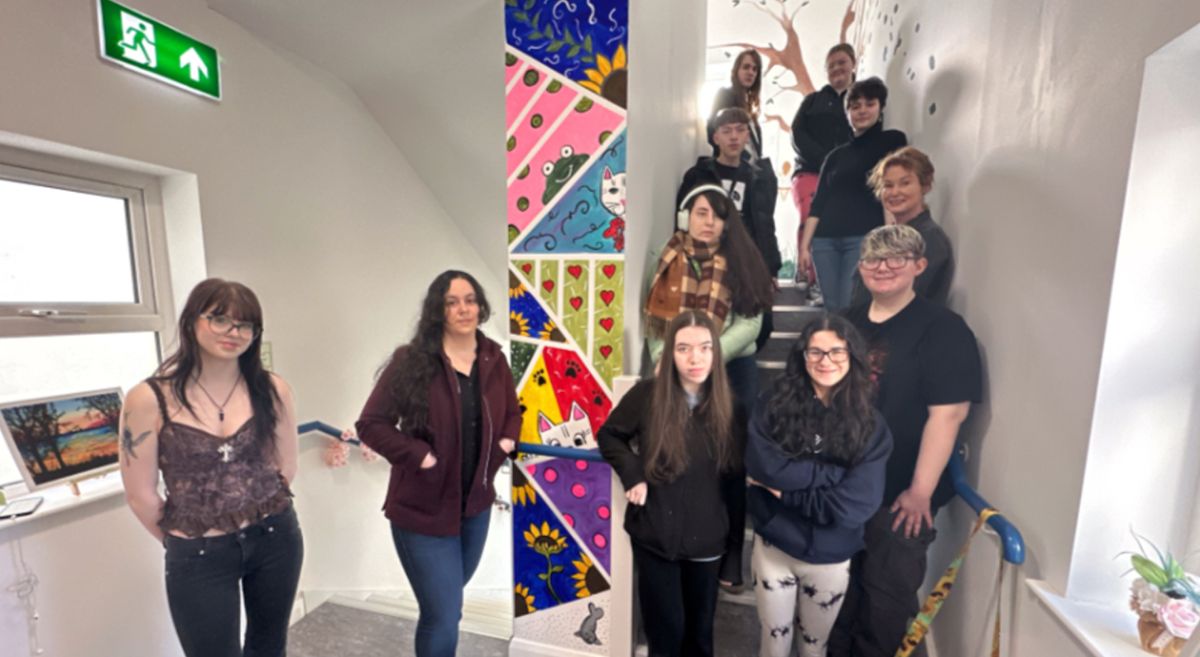The Learning Revolution – Interview with Speaker Olly Newton
0 min read
01 December 2020

Ahead of SERC’s Learning Revolution Conference 9 & 14 December, we interviewed the exciting key speakers about their work and to hear about why they are passionate for change in education. This week we hear from Olly Newton.
Olly Newton spent 12 years in the Department for Education working on policies including 14-19 diplomas, raising the participation age and finally as Head of Apprenticeship Strategy.
Olly is now Executive Director of the Edge Foundation, where he oversees a programme of primary research, is lead author on all of the charity’s policy reports and runs the Edge Future Learning delivery programme for schools and colleges.
In his spare time, Olly volunteers with the Scout Association, is Enterprise Adviser for Firth Park Academy and supports community theatre in Sheffield.
Having been involved in education policy you are now involved in influencing and transforming education for a new era. What have been the drivers for you in this change?
Working in the civil service was brilliant training and really helped me understand how education policy gets made. But two things made me want to move on.
The first was that I have my own views about the right direction for policy – towards a broader, more expansive education that creates well rounded young people. That isn’t the direction of travel for English education policy at the moment.
The second was that I’ve always loved working more directly on the ground and seeing the results. So I was really keen to find a role where I would be able to work much more closely with individual schools, colleges and universities.
What is shaping direction for the Edge Foundation in terms of how they invest time and support for the wider education community?
We think there are many drivers of change and so rather than specialising in one area, we like to get involved in as many ways as we can.
We do and commission education research to understand best practice both here in the UK and abroad – we’re just back from a ‘virtual visit’ to Canada talking to FE colleges and universities there.
We work directly with schools and colleges to support them to change their practice, offering training in partnership with amazing organisations including South East Regional College.
We also do policy development and influencing, aiming to support governments to understand the implications of the evidence and practice in order to change education policy to make this kind of work easier and more widespread.
To remain globally competitive and develop engaged citizens how does policy within education need to change?
We need to move towards a system that values knowledge, skills and behaviours equally.
The first thing I would change is the assessment system as that drives a lot of behaviours. When in our adult life do we need to learn and then sit and recall hundreds of facts about a topic? We need to replace our reliance on old-fashioned written exams with a more holistic approach taking into account practical work, coursework and teacher-led assessment.
Second, we should strive for a broad and balanced curriculum for all young people – a wide range of subjects throughout school including technical and creative topics, and then broad-based apprenticeships and technical education.
Third, we should teach that curriculum through new pedagogical approaches like Project Based Learning that break down the boundaries between traditional ‘subjects’ and connect learning to real life to bring the curriculum alive.
This year has highlighted the shortcomings of examination-based assessment. In what ways should assessment change to assess what is worth learning?
The challenges of examination-based assessment have been present for a long time but this year has really shone a light on them.
We have helped to found a movement called Rethinking Assessment which aims to look at the wide range of different options and models from across the world.
What is clear is that we need to move away from the Nineteenth Century focus on written exams as the only ‘rigorous’ method of assessment. They have their place, but amongst a much wider range of tools.
International examples such as the International Baccalaureate, mastery transcript and passage presentations all give us an insight into the wider range of holistic assessments that would be more appropriate for the Twenty-First Century.
What countries and/or organisations are leading the way in policy change?
I think every country has some amazing practice that can be an inspiration to others and one of our key aims at Edge is to find and share that.
Looking close to home within the UK, we are always keen to join up approaches in the four nations. I love Scotland’s programme of Foundation Apprenticeships and Wales’s new school curriculum. Meanwhile, we are supporting SERC to offer training to English Colleges in project- based learning
Further afield, we have just been looking at the way in which the FE system is so strongly valued and invested in in Canada; we work with many innovative schools in the US bringing project-based learning to life, such as High Tech High in San Diego; and our European Research Network brings together colleagues looking at vocational education and training across the continent. There are lessons to learn everywhere we go.
The Learning Revolution online conference is on 9 & 14 December 2020. Click here to book your place.
Visit www.serc.ac.uk to find out how you could be #BetterOffAtSERC
#OnlineAndOpenForBusiness Find us on Facebook, search SERC.
Page Tags
SERCLatest News
Keep up with the latest from SERC



